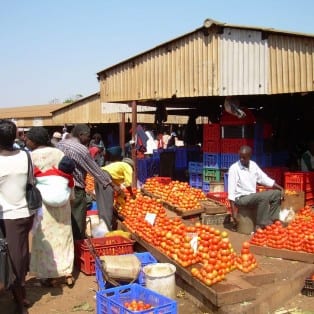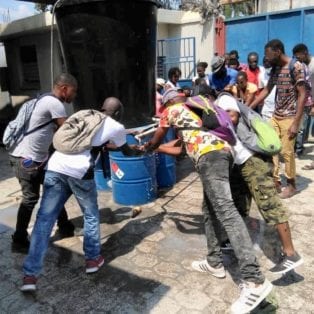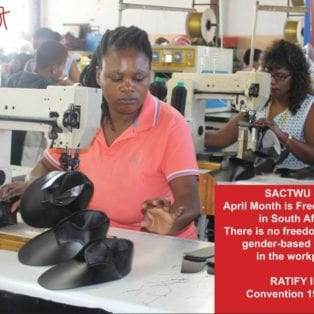Among the world’s most vulnerable workers are those marginalized within their economies and societies, namely the women and labor migrants who predominate in the informal economy, where they perform valuable work in low-wage jobs as janitors, domestic workers,...
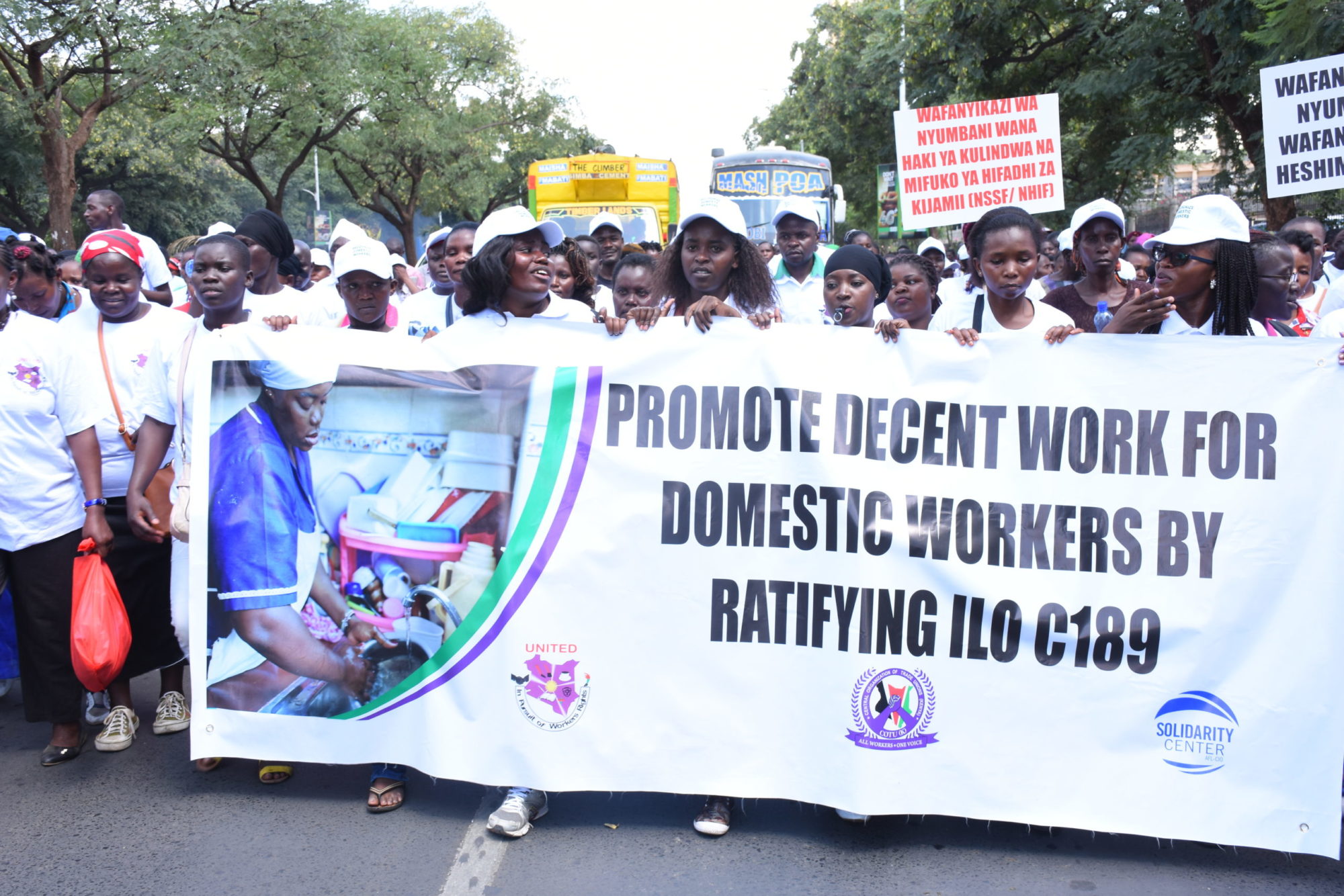
The Solidarity Center joins with unions in Kenya and around the world in championing ratification of the ILO global treaty Convention 189 covering domestic worker rights. Credit: KUDHEIHA
Millions of domestic workers are employed in countries where they are excluded from national labor laws, including limits to working hours, minimum wage and overtime pay. Domestic workers, who are predominantly women and sometimes children, toil invisibly in private homes. Some live on their employer’s premises where, away from the public eye, they often are subject to abuse. Nearly one in five domestic workers are international migrants.
The Solidarity Center supports unions around the world as they assist domestic workers in gaining their rights on the job such as in Honduras and Ukraine, where workers formed the first domestic workers union in their countries with the assistance of Solidarity Center partners.
Together with the International Domestic Workers Federation (IDWF) and the U.S.-based National Domestic Workers Alliance, the Solidarity Center supports leadership, gender equality and rights-based training for domestic workers to strengthen their ability to advocate for improved wages and working conditions.
Many domestic workers migrate for jobs to the Gulf countries and the Middle East, and the Solidarity Center works to advance their rights with union partners in origin and destination countries, such as the Kuwait Trade Union Federation (KTUF), which launched a migrant worker office that assists domestic workers and other migrant workers experiencing wage theft and other forms of exploitation.
The Solidarity Center, which joined with unions and rights organizations in championing passage of the 2011 International Labor Organization’s global treaty (Convention 189) covering domestic worker rights, assists unions in pushing for adoption of the treaty in their countries to ensure domestic work is legally recognized and valued. The Solidarity Center also supports domestic worker unions achieve labor rights in countries such as Mexico, where union partners won the right to written contracts and a ban on employing workers younger than age 15.
Back at Work, Haiti Garment Workers Risk COVID-19
As garment factories in Haiti begin reopening after shuttering for up to four weeks to prevent spread of the novel coronavirus, workers risk exposure during their crowded work commutes and at factories, while most have not received the wages they were promised during...
Women & Their Unions Stand Strong during COVID-19
In Tunisia, 150 women garment workers self-quarantined in their factory to manufacture desperately needed protective masks, churning out 50,000 a day as the COVID-19 crisis broke out. The South African Clothing and Textile Workers’ Union (SACTWU) reached an agreement...
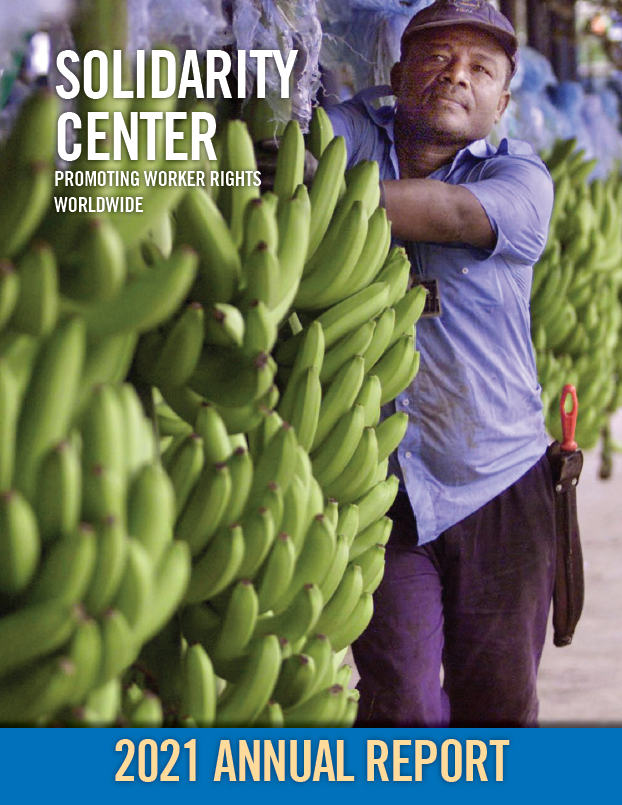
2021 Annual Report
Download here.
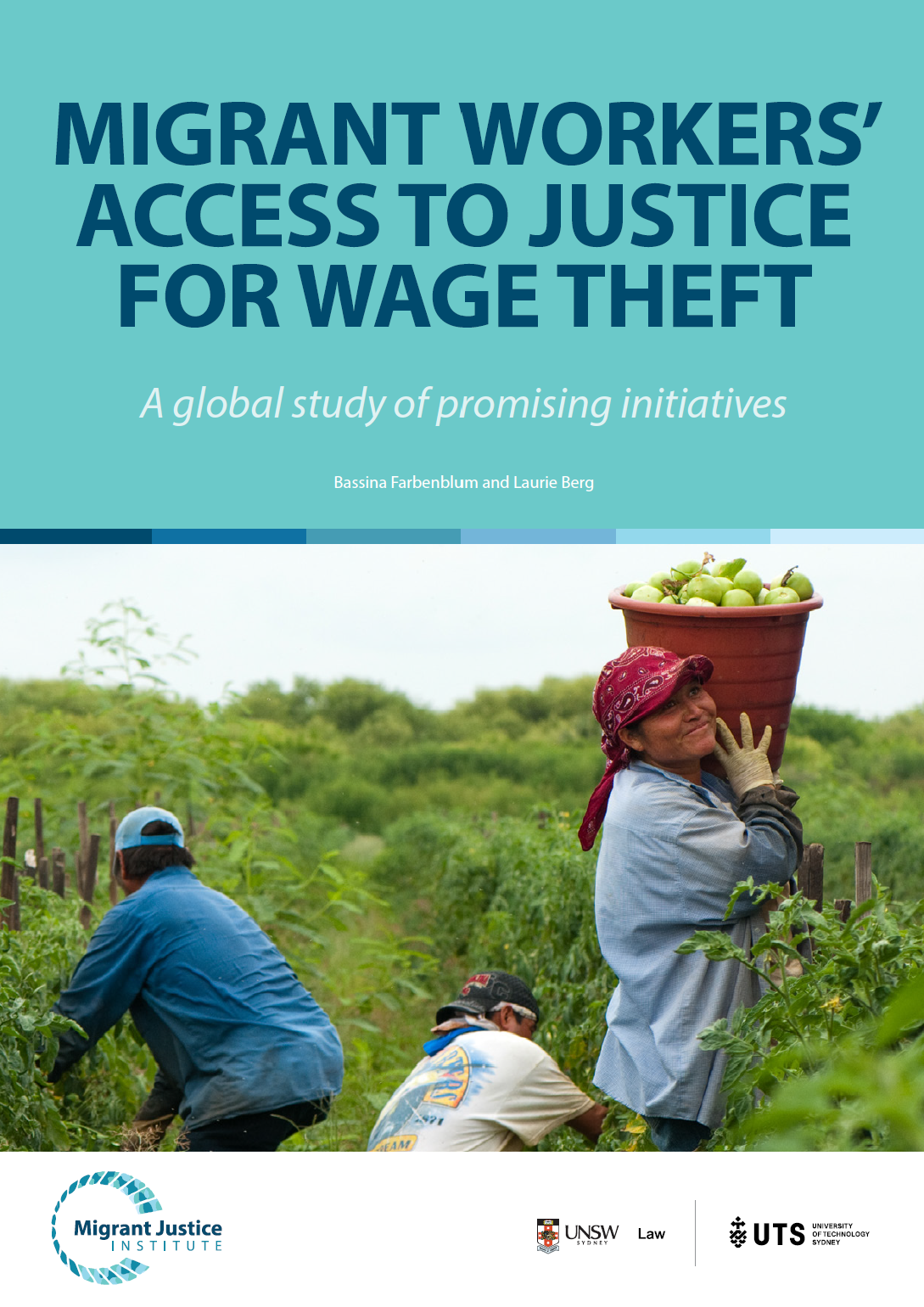
Migrant Workers’ Access to Justice for Wage Theft: A Global Study of Promising Initiatives
The report identifies initiatives from around the world that enable migrant workers to obtain redress for wage theft through administrative and judicial mechanisms. These initiatives shift risks and burdens of wage recovery away from workers and onto government and...
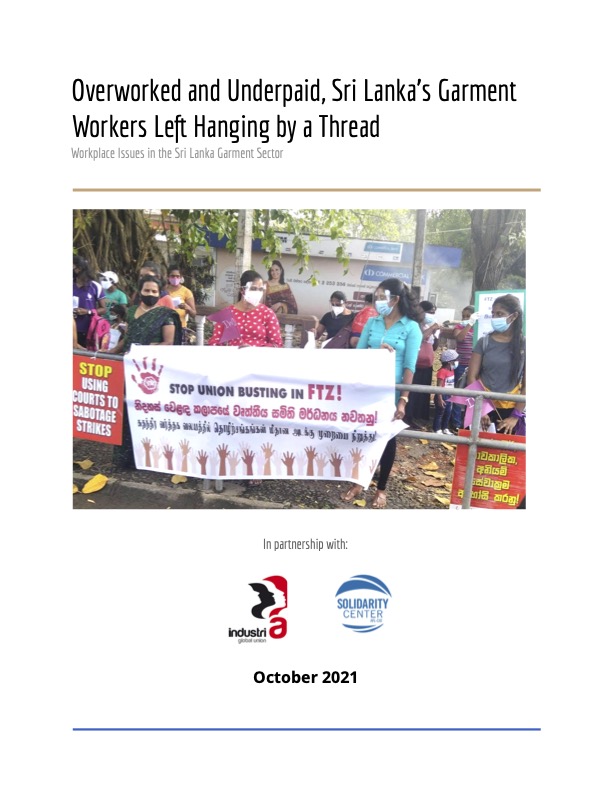
Overworked and Underpaid, Sri Lanka’s Garment Workers Left Hanging by a Thread
A survey of garment workers in Sri Lanka, conducted in partnership with Solidarity Center and IndustriALL, found employer opposition and harassment has limited their ability to form unions and address workplace rights violations such as increased workloads and work...
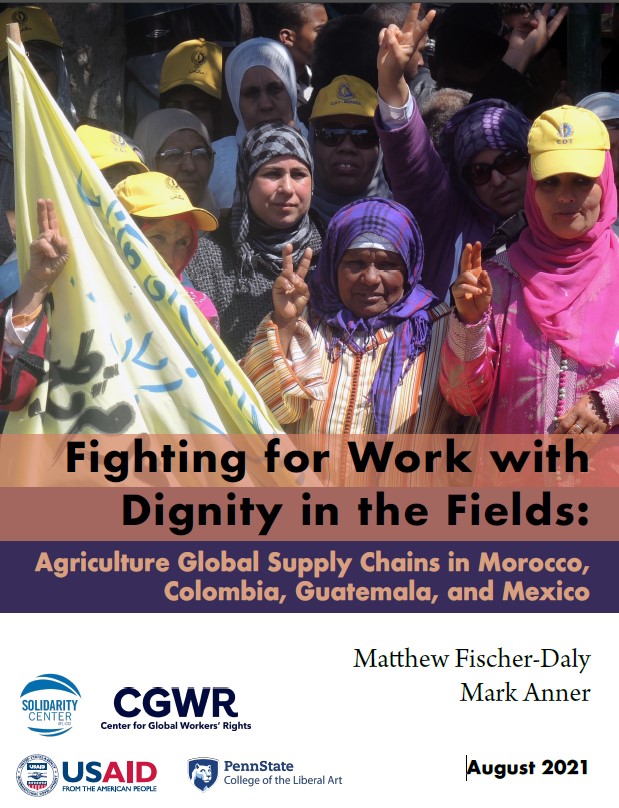
Fighting for Work with Dignity in the Fields: Agriculture Global Supply Chains in Morocco, Colombia, Guatemala and Mexico
Where unions establish collective bargaining, they initiate the strongest mechanism for protecting agricultural workers’ rights, health and dignity. Through analysis of five agribusiness sectors—including palm oil in Colombia, bananas in Guatemala, strawberries in...
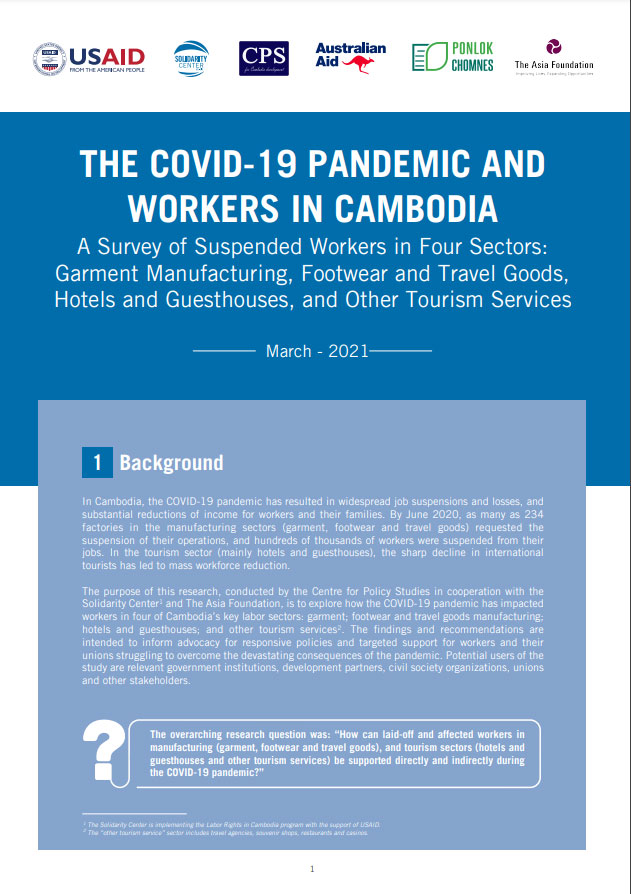
THE COVID-19 PANDEMIC AND WORKERS IN CAMBODIA
As a new wave of COVID-19 hits Cambodia, a new study recommends urgent action to ensure garment and tourism workers workers do not experience widespread loss of jobs and wages as they did in 2020. The Center for Policy Studies survey is supported by Solidarity Center...
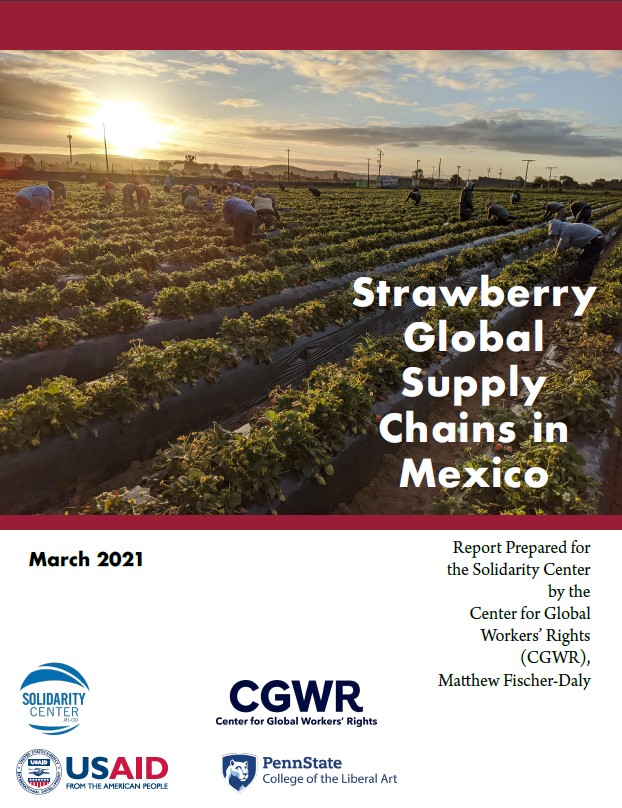
Strawberry Global Supply Chains in Mexico
The governments of Mexico and the United States have supported the growth of the Mexican berry sector by creating conditions for a cheap supply of labor and profit growth. Mexican field workers receive an estimated 12 cents per pound of strawberries sold in U.S....

